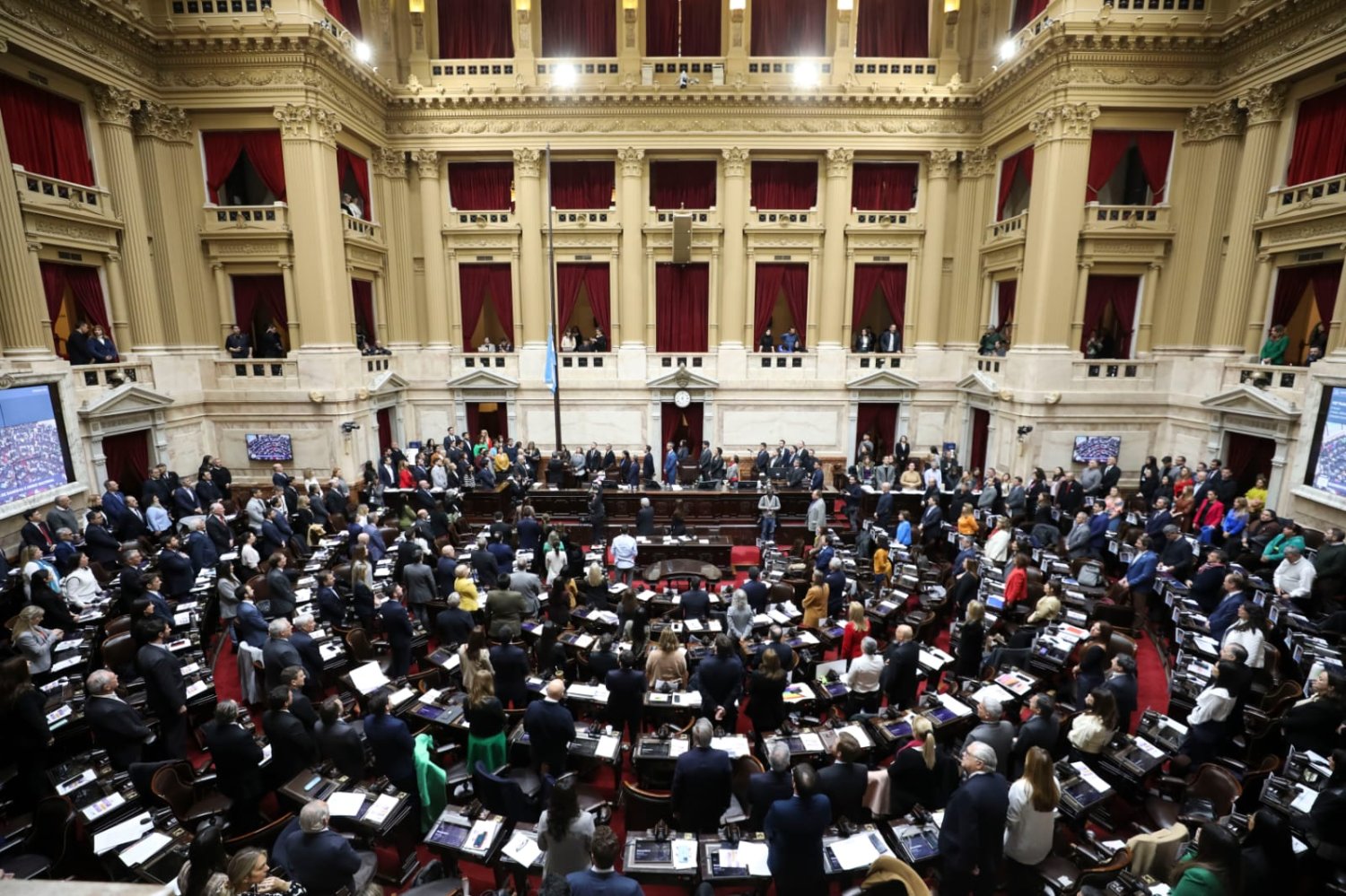
6 months after the entry of the Base Law into Congress, the Chamber of Deputies has in its hands the possibility of giving the first two laws to Milei, with its final sanction. The vote is expected to take place at midnight. Whatever the government takes today will be questioned and possibly brought to court..
From the bench of Left Front They challenged the entire treatment and asked to declare it void. Nicolás del Caño said it is “one of the biggest corruption scandals this Congress has ever had”. He reiterated what one of the deputies of the block led by Pichetto said to confirm it: “Agost Carreño said that luckily in this House they did not have to hand over embassies and roundabouts”. This is how he referred to the exchange of positions for votes, to achieve an agonizing tie and define the vice president in the Senate. Cases of Lucila Crexell, Edgardo Kueider and “Camau” Espínola They were at the center of these scandals. “They are bought votes” the deputy insisted. Regarding the constitutional inconsistencies, Del Caño explained: “If the income tax had been sent as a separate law it would already be rejected”.
The problem centered on the Article 81 of the National Constitutionwhich was the subject of different interpretations in the chamber by each sector. It establishes the procedure when there is no agreement between the two Chambers on which text to approve, as is the case on this occasion.

Were three axes of discussion. One on the bicameral system (which requires that laws be approved by both the House of Representatives and the Senate), another on the characteristics of the “omnibus laws” or “packages” like the prosecutor who includes many different laws inside, and another on the Powers of the Chamber of Origin (in this case Deputies) established in article 81.
From Union for the Homeland questioned only the legitimacy of the fiscal packagebecause only in that case the government and the collaborationist blocs intend to replace the restitution of profits and the reduction of personal assets that the Senate rejected in the particular vote. As with the Ley Bases the government had to resign itself because it did not have the votes to insist on the text of the half-sanction, the Peronist bloc focused only on the unconstitutionality of the fiscal package.
The deputy Vanesa Siley of the Union for the Fatherland explained that the omnibus laws were always proposed by the executive branch. Citing constitutionalists, he said that “Their content should be in separate laws. It is not unconstitutional, but it is inadvisable”. He indicated that since Personal Profits and Assets were rejected by the Senate, Deputies cannot insist. “In a bicameral regime, there is no framework for this parliamentary treatment” in reference to the insistence of the government and the lobbying blocks of the “Senate version” fiscal package.
On the other side of the librarythe leading voice and staunchest defender of Milei’s government strategy, was Silvia Lospennato of PRO. The arguments focused on indicating that “When there is a partial disagreement, the hypothesis of total rejection is ruled out (…) so any change by the Reviewing Chamber is considered an amendment”. In this way he sought to respond to the problem that Article 81 speaks of “corrections or additions” but not “deletions.” The argument that he was never able to answer is that in an omnibus law or a package, there are several laws that could be separate.
Another of the arguments of the PRO deputy is that In tax matters the Chamber of Deputies has the last word, just as the Senate has the last word on issues related to the co-participation system. According to this argument, this would give greater power to the Chamber of Deputies, which was the chamber of origin, to have the last word.
The libertarian deputy José Luis Espert, tried to develop the same arguments as Lospennato before, but he did so by reading verbatim every word he had in his papers. That earned him the question from some deputies about “who wrote the text” that he read.
What is certain is that if the restitution of profits (salary tax) is approved, It will be brought to court and there will be a multitude of injunctions for workers. marking the irregularities.
At the close of this note, the earnings statement continues to be the point that generates the most expectations because the government expects a very close vote.
Source: www.laizquierdadiario.com

